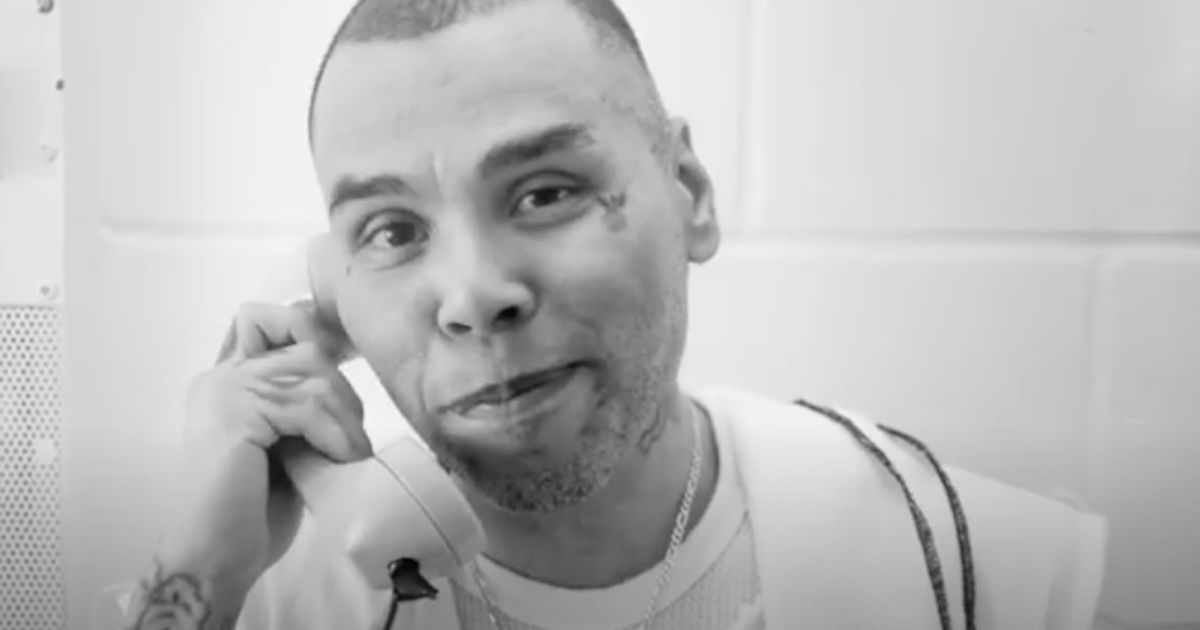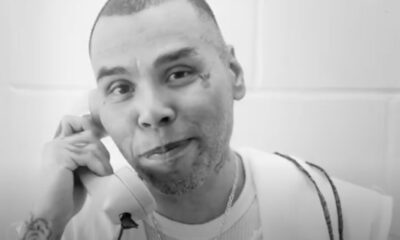World News
Texas executes Ramiro Gonzales despite doctor’s recall

Texas executed Ramiro Gonzales on Wednesday, despite a stunning turn from a psychiatrist who helped send him to death row 17 years ago.
Gonzales, 41, was killed by lethal injection as punishment for the kidnapping, rape and murder of Bridget Townsend when they were both 18. Gonzales was struggling with a drug addiction at the time. He killed Townsend, his drug dealer’s girlfriend, while trying to steal drugs. He had turned 18 two months before the murder, making him barely old enough to be legally eligible for the death penalty.
“The Ramiro that the State of Texas murdered tonight was not the Ramiro who committed these crimes 20 years ago,” Gonzales’ attorneys, Thea Posel and Raoul Schonemann, said in a statement. “The Ramiro who left this world was in every sense a deeply spiritual, generous, patient and purposeful person, full of remorse, one whose driving force was love. He sought to spread and embody love in all aspects of his life, even in the hardship and physical isolation of death row where he has lived for the past eighteen years.”
“Ramiro knew he had taken something from this world that he could never give back,” Gonzales’ attorneys said. “He lived with that shame every day, and it shaped the person he worked so hard to be. If this country’s justice system was meant to encourage rehabilitation, he would be an example.”
Patricia Townsend, Bridget Townsend’s mother, previously told USA Today said Gonzales’ execution would be a “joyful occasion” for her family, noting that it took place on her daughter’s birthday. Bridget Townsend “was a beautiful person who loved life and people,” she said. “Every time she was with someone she hadn’t seen in a while, she had to hug him.”
Texas is the only state that requires jurors to determine that the defendant is likely to commit criminal acts of violence that would “pose a continuing threat to society” in order to impose a death sentence. During Gonzales’ trial in 2006, psychiatrist Edward Gripon testified that Gonzales enjoyed acts of sexual violence and was unlikely to stop or be rehabilitated.
Fifteen years later, Gripon evaluated Gonzales and… his judgment reversed, citing his previous reliance on a debunked statistic and witness statements that have since been retracted. It was the first time the psychiatrist issued a report changing his opinion in a death penalty case, Gripon told The Marshall Project in 2022.
Texas Defender Service/Elisabetta Diorio
Like most people on death row, Gonzales suffered abuse and neglect as a child. His mother, who was 17 when he was born, struggled with drug and alcohol addiction and turned Gonzales over to her parents, according to a pardon petition the Texas Board of Pardons and Paroles rejected earlier this month. The first time Gonzales met his father was when he was 19 and they were both incarcerated in the county jail.
From the age of six, Gonzales was repeatedly sexually abused, including by a cousin. One of the few relatives Gonzales was close to, his aunt Loretta, was killed in a car accident when he was fifteen. He turned to cocaine and methamphetamine to cope with the grief and dropped out of school, stealing and forging checks to pay for it. for medicines.
Two months after his 18th birthday, Gonzales decided to rob his drug dealer’s house. When Townsend, who was alone inside, tried to call her boyfriend, Gonzales attacked and killed her. After being arrested for sexually assaulting another woman, Gonzales confessed to killing Townsend.
“He doesn’t deserve mercy,” Patricia Townsend told USA Today. “And his youth should have nothing to do with it. I know a lot of people who had difficult childhoods… He made his choice.’
Gonzales was previously expected to be executed in 2022. Shortly before his execution date, Gripon presented Gonzales’ attorneys with his reevaluation report, in which he acknowledged errors in his testimony at the trial.
In 2006, Gripon had testified that recidivism rates among people who commit sex crimes are as high as 80%. In his second report he described how that number came later traced based on a 1986 Psychology Today article and found to be unfounded.
Gripon also initially relied on written statements from Gonzales’ cellmate, Frederick Ozuna, which described Gonzales confessing to returning to the crime scene several times to have “sex with the body.” In an affidavit, Ozuna later recanted those statements, stating that an officer threatened him with harsher punishment if he did not cooperate against Gonzales.
“With the passage of time and considerable maturity [Gonzales] is now a significantly different person both mentally and emotionally,” Gripon wrote in his 2022 report. “At this time, taking into account all the evidence provided to me, my evaluation of Mr. Gonzales and his current mental state, I am , with a reasonable psychiatric probability, believes that he does not pose a threat of future danger to society in relation to predictable future acts of criminal violence.”
Two days before Gonzales’ execution date in 2022, the Texas Court of Criminal Appeals granted a stay and ordered the trial court to consider Gonzales’ claim that his death sentence was the result of false expert testimony. Without holding a hearing or reviewing additional evidence, the court literally signed the state’s “findings of fact and conclusions of law” and denied relief. (This is not unusual: a 2018 report published in the Harvard Law Review found that judges adopted prosecutors’ findings in their entirety in 96% of the 191 cases the authors reviewed in Harris County, Texas.)
During Gonzales’ 18 years on death row, “he has devoted himself earnestly to self-improvement, contemplation and prayer, and has grown into a mature, peaceful, kind, loving and deeply religious adult,” his lawyers wrote in a petition. before the U.S. Supreme Court, arguing that Gonzales was ineligible for execution because there was no risk or likelihood that he would pose a threat to society. “He acknowledges his responsibility for his crimes and has attempted to atone for them and seek redemption through his actions.”
Gonzales earned the equivalent of a bachelor’s degree from a Bible college and was one of the first peer coordinators when Texas’ death row introduced “faith-based pods.” In that role, Gonzales provided spiritual guidance to others who were executed.
The Supreme Court declined to intervene to stop Gonzales’ execution. Gonzales was the eighth person executed in the US this year. On Thursday, Oklahoma plans to host Richard Norman Rojem Jr. to execute.
In a interview With The Marshall Project, days before his death, Gonzales addressed the tension between rehabilitating people and then executing them.
“I think ultimately the state is afraid to acknowledge the fact that we can be rehabilitated and contribute to society from prison – because it goes against the way they prosecuted us, how they labeled us in court as a threat to society,” Gonzales said. “I wish they would be honest and say, ‘We screwed up. People can be rehabilitated.” But it’s hard to admit your mistakes, especially when politics are involved.”













